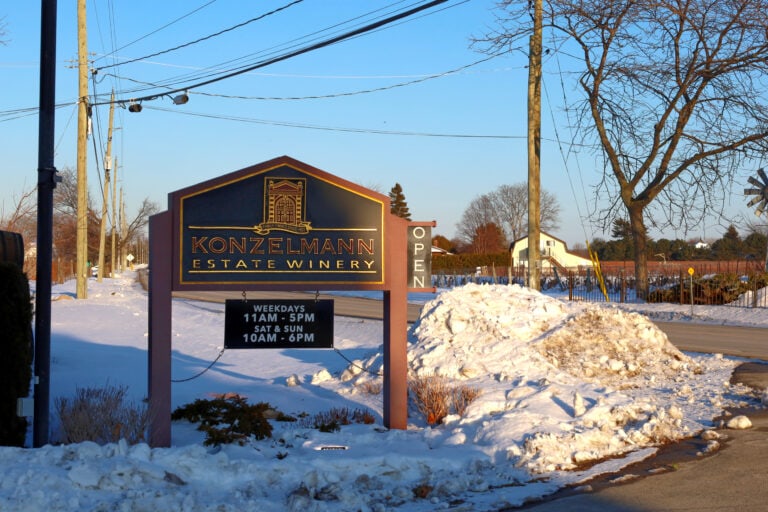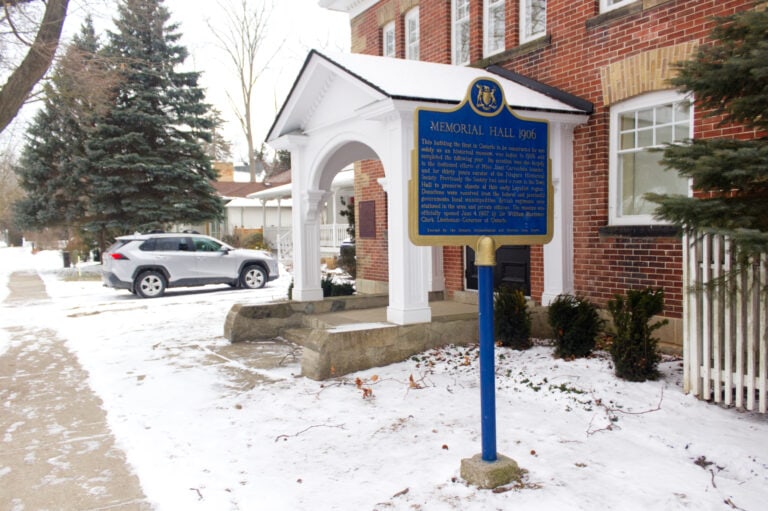To hear Scott MacSween tell it, his family’s 250-acre tender fruit business is founded on serendipity, a lucky moment in time when things just turned the right way for him and his soon-to-be-wife, Maureen.
It was 1982, Scott and Maureen had been sweethearts since high school. They met as summer students, working at Seaway Farms, he in the fields and greenhouses, she at the garden centre.
They both loved the whole idea of growing things and bringing them to market but did not see any way to make it happen on their own.
“Ever since I was a high school student, I just fell in love with farming,” says Scott. “It’s gotta be in my blood. I don’t know how to explain it. I just had a passion for the farm.”
Just as Scott was about to graduate from university, with a degree in political science, Vince Pillitteri, owner of Seaway Farms, came to him with a proposition.
“It was perfect timing.”
“Vince knew I loved farming,” Scott remembers. “He says, 'Scott, I want to sell a few of my leases. Would you be interested? If you wanted to buy my leasehold interests, I could use the money to build greenhouses.’ ”
The offer came out of the blue.
“It was the only way we could have gotten in to farming 30 years ago. And a lot of landowners asked us to farm their farms. Being able to rent in the beginning was so lucky. Luck, it was all I can attribute it to.”
Over time the family worked as many as 10 small farms at once, gradually building the business to a combination of rented and owned acreage, almost exclusively tender fruit.
Today, about 95 per cent of the produce is distributed through Vineland Growers Co-operative, to grocery chains across Canada. Two of their biggest customers are Walmart and Costco.
But, in many ways, Quiet Acres, a roadside stall at the corner of East West Line and Lakeshore Road, is the public face of the operation.
It is here that Maureen and her team sell only fresh produce from their own farms. “Except some asparagus for the Thwaites, around the corner.”
Each growing season, Quiet Acres peddles over different 30 fruits and vegetables, just as they are ready for picking from the surrounding fields. It started a few weeks ago with strawberries and will end in October with apples, pumpkins and gourds.
Roughly in order of appearance, you'll find: Strawberries, rhubarb, asparagus, peonies, cherries, raspberries, black and red currants, garlic, beets, zucchini, potatoes, peonies, plums, apricots, peaches, nectarines, tomatoes, eggplant, cucumbers, beans, corn, onions, sovereign coronation grapes, sun flowers, gladiolus, apples, pumpkins and gourds.
“We’ve developed a good reputation,” Maureen says with obvious pride. “People want to be aware of where their food comes from. People are so enthralled by that. There are not many roadside stands, like ours, where you are actually buying directly from the farmer.”
A number of local restaurants and bed and breakfasts are part of the buy-local bandwagon, regularly purchasing their produce from the MacSweens.
It is a bright sunny day when we meet, sitting in Muskoka chairs under a massive purple beech tree, in front of their attractive home on the Quiet Acres property, a couple of hundred metres up the lane from the market stand on Lakeshore Road.
The affable couple first got involved at Quiet Acres in 2000, when Bruce and Ruby Romanek, longtime proprietors of the 33-acre farm and market, decided they wanted to retire. The MacSweens leased the business at first, purchasing it in 2017.
“They asked us if we wanted to lease the property,” says Scott. “They knew Maureen knew how to run the fruit stand and I knew how to farm.”
Unlike many Niagara farming families, the MacSweens are really first-generation farmers.
Their dynasty starts here.
Scott grew up on a small hobby farm on McNab Road, son of a St. Catharines obstetrician and a stay-at-home mom, one of six siblings. He attended Niagara District High School, before he went off to university.
“My father didn’t know the first thing about driving a tractor or farming or anything,” says Scott. “After two summers working at Seaway Farms, I made half of it productive – five acres of the farm were arable.”
Maureen grew up locally, too, on Read Road. She was a Cratt. After attending Dennis Morris High School in St. Catharines, she went on to Mohawk College. Her parents operated the Esso fuel oil franchise in Niagara.
Maureen remembers spending time in the vineyards with her grandfather, Frank Walsh, the 1964 Niagara Grape King.
She and Scott were married in 1986.
For Scott, now 60, and Maureen, 59, family plays a huge part in their business.
“We’ve always wanted to have the children working with us,” says Maureen. “They were instrumental in growing our farm. They’ve all worked on the farm during their growing-up years.”
“The kids never got bored in the summer months. It was never a chore. They always wanted to work on the farm. That work ethic was engrained.”
The parents knew they weren’t all going to be interested in the farm. “But I know if I needed them to help me at the fruit stand over the weekend, they’d be here.”
Caroline, 24, now an environmental engineer in Toronto, started helping on the farm at four years old.
Elizabeth, at 29, the eldest, is a pharmacist in St. Catharines.
And Kevin, in the middle, at 28, earned a commerce degree and is now a partner in the business. His wife Emily helps on the admin side and in the market stand.
“The kids have all added their touch.”
But it is clear, Scott and Maureen believe, they have an even larger family.
They include 50 temporary farm workers from Jamaica and some 25 locals during peak periods, in their extended family.
“We sure depend on our offshore workers,” says Scott. “Every year they are becoming more and more important to us. Without them we wouldn’t have our tender fruit industry.”
When Kevin joins the conversation, talk turns to how the industry is adapting to changes led by technology, climate change and other market forces.
One of the biggest changes has happened in packaging. Father and son agree the new way of doing things is good, but buying and commissioning a new packing line 10 years ago, had its challenges.
Both also agree that climate change is making everything dryer, forcing greater attention to irrigation. “We have three experts who do almost nothing else but manage our irrigation,” says Scott.
On the positive side for these tender fruit farmers, the past decade has brought increasing demand for what they grow.
“Ten years ago, there was really too much supply,” says Scott. “But the wineries have done so well that some tender fruit acreage has gone that way. Now there’s big demand and we don’t have enough product.”
Scott and Maureen agree that Kevin is making a huge contribution on another big change in the industry — the paperwork.
“Emily and I have a big task just keeping up with the demands of government oversight,” says Kevin. “COVID stuff, traceability, food safety reporting, all tied to the computer.”
What is next for the second generation at MacSween Farms and Quiet Acres?
“I guess you could say I just bring youth,” Kevin ponders the question. “I’m younger and not as banged up as he is,” he adds, sharing a chuckle with his father.
“We’re all in on tender fruit. I think we will probably just keep things going the same way. This business is satisfying enough.”
Scott and Maureen nod proudly.



.jpg)






